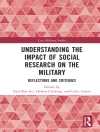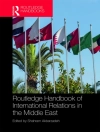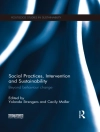`A detailed and valuable addition to the literature that will be a very useful resource for lecturers, as well as having a wide appeal among students′ – Tim May, University of Salford
Have you ever wondered what a concise, comprehensive book providing critical guidance to the whole expanse of social science research methods and issues might look like? The A-Z is a collection of 94 entries ranging from qualitative research techniques to statistical testing and the practicalities of using the Internet as a research tool. Alphabetically arranged in accessible, reader-friendly formats, the shortest entries are 800 words long and the longest are 3000. Most entries are approximately 1500 words in length and are supported by suggestions for further reading. The book:
– Answers the demand for a practical, fast and concise introduction to the key concepts and methods in social research
– Supplies students with impeccable information that can be used in essays, exams and research projects
– Demystifies a field that students often find daunting
This is a refreshing book on social research methods, which understands the pressures that modern students face in their work-load and seeks to supply an authoritative study guide to the field. It should fulfil a long-standing need in undergraduate research methods courses for an unpatronising, utterly reliable aid to making sense of research methods.
สารบัญ
Abduction and Retroduction
Action Research
A Case Study
Analysis of Variance (ANOVA)
Attitudes
Biographical Method
CAPI (Computer Assisted Personal Interviewing)
Case Study
Causation
Central Tendency
Child Research
Comparative Analysis
Computer Simulation of Social Processes
Constructionism, Social
Content Analysis
Contingency Tables
Conversation Analysis
Correlation and Regression
Critical Theory
Cultural Analysis
Data Archives
Deduction
Diaries, Self-Completion
Discourse Analysis
Dispersion and the Normal Distribution
Documentary Sources
Ecological Fallacy
E-Mail as a Research Tool
Empiricism, Abstracted Empiricism
Epistemology
Ethics
Ethnography
Ethnomethodology
Exploratory Data Analysis
Factor Analysis
Feminist Epistemology
Feminist Methodology
Focus Groups
Gender Identity Dysphoria Assessment
Generalization
Geographic Information Systems (GIS)
Grounded Theory
Hawthorne Effect
Hermeneutics
Historical Methods
Hypothesis Testing
Ideal Type
Impact Assessment
Induction
Intellectual Property Rights
Internet
Interpretation
Interviews
Literature Searching
Loglinear Analysis
Longitudinal Research
Measurement, Level of
Meaning
Methodology
`Micro′ Sampling Techniques
Modernity
Multilevel Models
Narrative Approach
Naturalism
Observation, Overt and Covert
Online Methods
Paradigm
Participant Observation
Participatory Action Research
Phenomenology
Philosophy of Social Research
Policy Research
Positivism
Qualitative Research
Qualitative Research Data, Archiving
Queer Research
Questionnaire and Structured Interview Schedule Design
Questionnaires and Structured Interview Schedules
Realism
Reflexivity
Research Design
Sampling, Probability
Sampling, Quota
Sampling, Snowball
Assessing Hidden and Hard-to-Reach Populations
Secondary Analysis Qualitative
Secondary Data Analysis
Sensitive Research
Sex Surveys
Social Fact
Social Indicators
Social Statistics
Social Survey
Standardisation
Statistical Interaction
Structuralism/Poststructuralism
Systematic Review
Telephone Methods for Social Surveys
Theory
Triangulation
Unobtrusive Measures
Verbal Protocol Analysis
Verstehen
Vignette
Visual Research Methods
เกี่ยวกับผู้แต่ง
John D. Brewer is President of the British Sociological Association and Sixth-Century Professor of Sociology and former Head of Department (2004-2007) at Aberdeen University, moving from Queen’s University Belfast in July 2004. He was Head of the School of Sociology and Social Policy at Queen’s between 1993-2002. He has held visiting appointments at Yale University (1989), St John’s College Oxford (1992), Corpus Christi College Cambridge (2002) and the Research School of Social Sciences at the Australian National University (2003). He is a Fellow of the Royal Society of Arts (elected 1998), an Academician in the Academy of Social Sciences (elected 2003), a Member of the Royal Irish Academy (elected 2004), then only the third sociologist to be elected in the Academy’s 217-year history, and a Fellow of the Royal Society of Edinburgh (elected 2008). He was a member of the Training and Development Board of the ESRC (2005-2007) and has been Chair of the British Sociological Association (2004-2006), a member of the National Committee for Economics and Social Science of the Royal Irish Academy (1997-1999) and a member of the International Assessment Panel of the Irish Research Council for the Humanities and Social Sciences (2002-07). He currently sits on the Council of the Irish Research Council for Humanities and Social Sciences and is a member of the ESRC′s Research College. In 2001 he became a member of the Institute of Learning and Teaching in Higher Education. In 2010 he became a member of the United Nations Roster of Global Experts.












